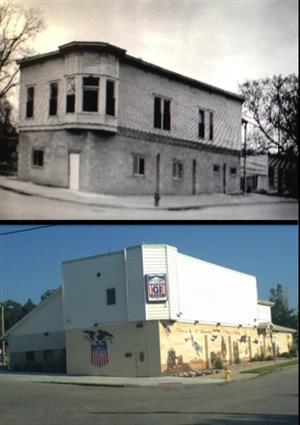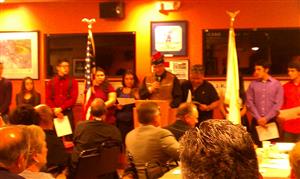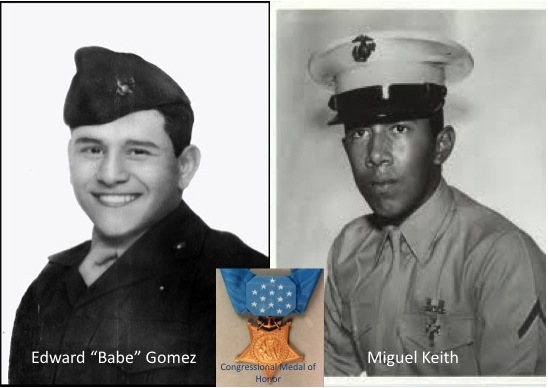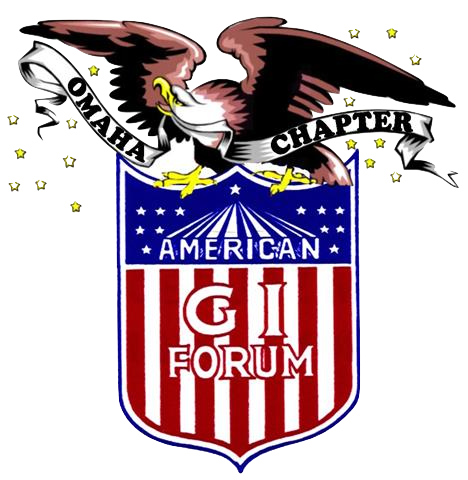Making Invisible Histories Visible
Page Navigation
- Making Invisible Histories Visible
- Lesson Plans and Resources
- iBooks on Omaha and Nebraska History for Primary Students
- Omaha Mapping Projects
-
African American Histories
- African American Artists
- African American Athletes & Facilities
- African American Churches
- African American Civil Rights Organizations - 1950s-1960s
- African American Civil Rights
- African American Contributions to Jazz, Gospel, Hip-Hop
- African American Dramatic Arts
- African American Education - Dorothy Eure & Lerlean Johnson
- African American Educators & Education
- African American Firefighters
- African American Homesteaders
- African American Law Enforcement
- African American Migration to Omaha
- African American Musicians of Omaha
- African American Newspapers
- African American Owned Businesses
- African American Politicians
- African American Social Life
- African American Workers at Omaha's Railroads & Stockyards
- African American Workers at the Naval Ammunition Depot in Hastings
- African Americans in the Civil War
- African Americans in Vietnam
- Charles B. Washington - Journalist and Civil Rights Leader
- Elizabeth Davis Pittman - Lawyer/Judge
- Green Book Omaha
- Marlin Briscoe - Professional Football Player
- Native Omaha Days
- Nebraska's Role in the Underground Railroad
- Sen. Edward Danner - Politician & Civil Rights Activist
- Sudanese Refugees
- Tuskegee Airmen
- European and Asian Immigrant Histories
-
Historic Neighborhoods & Buildings
- 24th and Binney/Wirt/Spencer Streets
- 24th and Lake Streets
- Central Park Neighborhood - 42nd and Grand Avenue
- Dahlman Neighborhood - 10th and Hickory Streets
- Hartman Addition Neighborhood - 16th and Williams Streets
- Indian Hills/Southside Terrace Neighborhood - 30th and Q Streets
- Jefferson Square Neighborhood - 16th and Chicago Streets
- Long Neighborhood - 24th and Clark Streets
- Orchard Hill Neighborhood - 40th and Hamilton Streets
- Smithfield Neighborhood - 24th and Ames Avenue
- St. Mary's Neighborhood - 30th and Q Streets
- Latino Histories
- Music Histories
-
Native American Histories
- Black Elk and John G. Niehardt
- Chief Standing Bear and Susette La Flesche Tibbles
- Dr. Susan LaFlesche Picotte - Native American Doctor
- Native American Education and Boarding Schools
- Native Americans in the Military
- Pre-statehood Interaction of Native Americans and Europeans
- Preserving Native American Tradition
- Restoring the Ponca Tribe
- The American Indian Movement in the 1960s and 1970s
- The Indian Congress at the 1898 Trans-Mississippi Exposition
- The Omaha Native American Indian Tribe
- OPS Elementary School History
- Redlining in Omaha
- Nebraska's Role in the Underground Railroad
- The 1898 Trans-Mississippi Exposition
-
What were the various goals and types of services provided by the American G.I. Forum?
Working for veteranos y sus familias.
-
Cuando el cuerpo del soldado
llegó con sus familiares,
la mortuoria de su pueblo
le negó sus funerales.Eso es discriminación
para el pobre ser humano;
ni siquiera en el panteón
admiten al mexicano.Johnson siendo senador
por el estado de Texas,
se le ablandó el corazón
al escuchar nuestras quejas.When the body of the soldier
arrived with his next-of-kin,
the mortuary in his town
denied him a funeral.That is discrimination
against a poor human being;
not even in a cemetery
do they allow a Mexican.Johnson being a senator
for the state of Texas,
felt his heart soften
when he heard our complaints.Excerpt from the ballad, “Discriminación a un martir”
The song above was a tribute of dedication to Felix Longoria, a soldier who was killed in action in WWII. The funeral director in his hometown of Three Rivers, Texas denied his burial rights. Dr. Hector Perez Garcia, the head of the American G.I. Forum, used the Forum’s resources to help the Longoria family. Eventually, the case was resolved and the Forum grew in popularity.
The first chapter of the American GI Forum in Nebraska was started by a group of veterans in North Platte, who struggled to continue because they didn’t have enough veterans or funds. Later, on Oct. 8, 1957, 14 Latino veterans living in Omaha formed The Omaha Chapter of the American G.I. Forum. Keeping the Omaha Chapter was tough, but the veterans sacrificed their homes, money, and free time. Many Mexican-American families lived in Omaha as well as Latino veterans. Thanks to the help from Dr. Garcia, the Omaha veterans were able to receive equal rights as well as education that would benefit the Mexican-American community.
A 3 minute video in 2013 interviewing G.I Forum members Richard Arellano and Mary Louise Plaza, a charter member of the Omaha Women's chapter.
Omaha Creates a Legacy with the Help of Dr. Garcia
-
Dr. Hector Garcia was fairly familiar with the Nebraska landscape. He completed his residency as a medical doctor at Saint Joseph Medical Center, which today is known as Alegent Creighton Health. He then wanted to help his country and volunteered as an Army medic during WWII. After completing his service, Dr. Garcia came back to South Texas and opened a medical clinic that helped the poor - especially Mexicans. When many families could not pay for Dr. Garcia’s services, he always said, “Pay what you can or when you can.” His clinic was a success for many Mexican people.
Though Dr. Garcia was a respected physician, he is better remembered as the founder and national leader of the American G.I. Forum. He drove to every chapter and to attend annual American G.I. Forum conventions throughout the United States. Mary Louise Plaza, a charter member of the Omaha Women's chapter, stated that she saw Dr. Garcia many times at national conventions. He was supportive of the G.I. Forum in Nebraska, and when he was available, he drove from Texas to come to visit members of the Omaha chapter for events such as the installation of new officers. He was a very busy man with the Forum, trying to show that Mexican-Americans changed the image of Mexicans from being “dirty people” to a group of great Americans who served in the war and helped to change history. In fact, two out of three Nebraska Medal of Honor winners were Mexican Americans. His hope was the education of Mexican-Americans for many generations to come. Dr. Garcia wanted the Latino community to be successful in their education and careers. His dream for the Forum was to get equal rights for all ethnic groups, but especially the rights of veterans. His wishes came true with the help of many volunteers, workers, and members to make the legacy continue for generations.

Turning it All Around: A place to call their own.
-
 The G.I. Forum building, at 2002 N Street, has been through so much. It started out as a building people would rather forget about, but with a little love and dedication from the founding families of the Omaha chapter, this building became an important landmark in South Omaha. In the early days, the Forum did not have enough money to buy even this condemned building. Members badly wanted a place to call their own, so the families of I.C. Plaza, Paul Marquez, and Paul Aranza mortgaged their homes for the down payment. Even through all the hardships they went through, I.C’s widow, Mary Louise, stated she “…would still do it all again.” Volunteer work made this building come to life. People volunteered for the electrical work, plumbing, and carpentry. In 2013, members still volunteer, with everything from watering the flowers to touching up the mural that was painted in recent years. The mural located on the east side of the building has the inspirational quotes; “Pain is temporary, Pride is forever,” as well as “Freedom is never free.” Each segment of the mural represents a different war; WWI, WWII, the Korean War, and the Vietnam conflict. The entire last segment represents the Army, Navy, Air Force, and Marines. If the G.I. Forum had not been started in Omaha, who knows what the city would look like today? This organization has impacted the community so much, all thanks to the hard-working people that dedicated their lives to getting this up and running.
The G.I. Forum building, at 2002 N Street, has been through so much. It started out as a building people would rather forget about, but with a little love and dedication from the founding families of the Omaha chapter, this building became an important landmark in South Omaha. In the early days, the Forum did not have enough money to buy even this condemned building. Members badly wanted a place to call their own, so the families of I.C. Plaza, Paul Marquez, and Paul Aranza mortgaged their homes for the down payment. Even through all the hardships they went through, I.C’s widow, Mary Louise, stated she “…would still do it all again.” Volunteer work made this building come to life. People volunteered for the electrical work, plumbing, and carpentry. In 2013, members still volunteer, with everything from watering the flowers to touching up the mural that was painted in recent years. The mural located on the east side of the building has the inspirational quotes; “Pain is temporary, Pride is forever,” as well as “Freedom is never free.” Each segment of the mural represents a different war; WWI, WWII, the Korean War, and the Vietnam conflict. The entire last segment represents the Army, Navy, Air Force, and Marines. If the G.I. Forum had not been started in Omaha, who knows what the city would look like today? This organization has impacted the community so much, all thanks to the hard-working people that dedicated their lives to getting this up and running.
Making Education Everybody's Business
-
 The American G.I. Forum recognizes well-rounded students who are trying to further their education. Their slogan “Education is freedom and freedom is everybody’s business” is a huge reason that members of the G.I. Forum work hard to fundraise for scholarships. The scholarship program exists to help young members of the community pay for their education just as Dr. Hector P. Garcia, the founder, would have wanted it. He worked hard for Mexican-Americans to become better educated, to gain better employment and make their lives more pleasant. Dr. Garcia’s dream is being achieved by many generations of members of the Omaha Chapter of the American G.I. Forum continuing to keep the legacy of promoting education alive.
The American G.I. Forum recognizes well-rounded students who are trying to further their education. Their slogan “Education is freedom and freedom is everybody’s business” is a huge reason that members of the G.I. Forum work hard to fundraise for scholarships. The scholarship program exists to help young members of the community pay for their education just as Dr. Hector P. Garcia, the founder, would have wanted it. He worked hard for Mexican-Americans to become better educated, to gain better employment and make their lives more pleasant. Dr. Garcia’s dream is being achieved by many generations of members of the Omaha Chapter of the American G.I. Forum continuing to keep the legacy of promoting education alive.
Recognizing Veterans' Bravery: The Congressional Medal of Honor
-
The Medal of Honor is the highest award for valorous action presented by the President of the United States of America in the name of Congress. President Abraham Lincoln first signed the bill S.J. No. 82 into law. Per capita, Hispanic soldiers have received more Medals of Honor than any other racial group.
Edward “Babe” Gomez was a Private 1st Class in the U.S. Marines during the Korean War. While looking for a new location to re-load their ammunition, his platoon stumbled upon a meeting point and “Babe” volunteered to go and check out the situation. Suddenly, he saw a grenade in an abandoned trench. He yelled for his comrades to watch out and run for cover while he ran into the trench, throwing himself on top of the grenade. The young man’s body absorbed the impact and he died. He was awarded the Medal of Honor because he showed great bravery and courage to risk his life for his country.
Miguel Keith was a Lance Corporal in the Marine Corps during the Vietnam War. Keith was already seriously wounded in battle. On May 8, 1970, members of his platoon, who were already outnumbered, came under heavy ground attack. At that moment, a wounded Keith ran to check the security of a defensive position for his comrades. He was running for cover and was killed by a barrage of machine gunfire.

Additional Information
-
The rotary telephone dial rang in shrill bursts until interrupted by Dr. Hector Perez Garcia. He lifted the receiver from its cradle to hear a woman's voice shaking as she recounted a tragic story. Dr. Garcia did not realize it at the time, but this phone call would serve as the catalyst to inspire advocacy for Mexican American military veterans and their families.
This phone call, from the sister of Pvt. Longoria’s widow, Beatriz Longoria, served to inform Dr. Garcia of what is known as the Longoria Affair. In the small town of Three Rivers, Texas in 1949, a funeral parlor refused to provide the use of its chapel for the wake of Pvt. Felix Longoria. Their reason for this decision: because he was a Mexican American and “the whites wouldn’t like it.” As the founder of the newly established American G.I. Forum, this race-driven and discriminating event propelled Dr. Garcia, and his then one-year-old organization, onto the national civil rights scene.
Founded in 1948 in Corpus Christi, Texas, Dr. Hector Perez Garcia formed the American G.I. Forum as an organization determined to advocate for the rights of Mexican American military veterans. Dr. Garcia served as a medical doctor in the United States Army during WW II and experienced sentiments of racism among many soldiers. He decided to form the American G.I. Forum as a post-war response to unfair treatment of Mexican American military veterans. Upon returning from World War II, many Mexican American military veterans faced discrimination as they sought to re-acclimate to civilian life. As Henry A.J. Ramos states in his book on the history of the American G.I. Forum, “If Mexican Americans had fought for this nation against the forces of barbarism and inequality abroad, then surely they would combat the persistence of these forces back home as they affected their families and communities.”
The American G.I. Forum continued to grow exponentially, reaching “10,000 members in 22 states and the District of Columbia” according to an article in the Omaha World-Herald from June 13, 1964 (The American G.I. Forum had been in existence for only 16 years at that time!). The American G.I. Forum was able to grow and expand so effectively due to its mission to engage members in all areas of their lives; for example, offering educational benefits and scholarships, hosting social events and community gatherings, and continuing a tradition of deep-rooted loyalty and patriotism.
In 2013, the American G.I. Forum continues its legacy with more than 85 active chapters in 13 states. The organization continually exemplifies its motto: “Education is our freedom and freedom should be everybody’s business!” Dedicated to the vision and goals of its founder, the American G.I. Forum still strives to encourage higher education, selfless service, loyal patriotism, social and political advocacy, and inspires community.
2013 MIHV Project

Student Reflections
-
"There is an undercover history everywhere and it is begging to come out. It's up to you to choose whether to dig it up or leave it alone."
— Jason A.
"This project really opened my eyes to the history of Omaha. When I first moved to Omaha, it took a while for the city to grow on me. Now more than ever, I feel like I know the city much better. I also loved interviewing people to get their first-hand accounts on all this history that they experienced. If you ever get a chance to do a project like this I suggest you do it!"— Elyssa F.
"I feel more confident in interviewing. The world's easier to see now than before I started the program. It was fun and tough but in the end, it was worth it."— Juan T.R.
Resources
-
Carroll, Patrick and Limón, José E. . Felix Longoria's Wake: Bereavement, Racism, and the Rise of Mexican American Activism. Austin: University of Texas Press, 2003. https://muse.jhu.edu/ (accessed July 17, 2013).
“Civil Rights Abuse Cited At IBP Plant.” Omaha World-Herald, February 28, 1970 AM. Courtesy of Douglas County Historical Society.
Dvorak, John, “Omahan Leads Fight Against Bi…” Omaha World-Herald, August 30, 1970 AM. Courtesy of Douglas County Historical Society.
“G.I. Forum Finding Jobs For Chicanos.” Omaha World-Herald, July 29, 1973 AM. Courtesy of Douglas County Historical Society.
“G.I. Forum President To Speak in Phoenix.” Omaha World-Herald, February 18, 1971 AM. Courtesy of Douglas County Historical Society.
“G.I. Forum Said Fastest-Growing.” Omaha World-Herald. April 12, 1958 PM. Courtesy of Douglas County Historical Society.
“’Great Gains’ by G.I. Forum.” Omaha World-Herald, June 13, 1964 PM. Courtesy of Douglas County Historical Society.
“Group’s Aim: Guard Rights.” Omaha World-Herald, January 18, 1962 PM. Courtesy of Douglas County Historical Society.
Justice for my People. Produced by Jeff Felts, 2002. KEDT Corpus Christi. South Texas Public Broadcasting System, Inc. DVD.
Lewis, Roger. “’Mexican-Americans Need White Support.’” Omaha World-Herald, June 20, 1971 AM. Courtesy of Douglas County Historical Society.
Mary Louise Plaza (member of Women’s Omaha Chapter of the American G.I. Forum) in discussion with Omaha Public School students, July 16, 2013.
“Miss Castillo to Represent Omaha.” Omaha World-Herald, April 20, 1964 AM. Courtesy of Douglas County Historical Society.
Otis, Harry B., and Donald H. Erickson. E Pluribus Omaha: Immigrants All. Omaha: Lamplighter Press, 2002.
Provost, Wally. “Mexican-Americans Salute Metro Kings.” Omaha World-Herald, April 17, 1968 PM. Courtesy of Douglas County Historical Society.
Provost, Wally, “Sports Helps Sell Forum Program.” Omaha World-Herald, April 18, 1968 PM. Courtesy of Douglas County Historical Society.
Ramos, Henry A.J. A People Forgotten, A Dream Pursued: The History of the American G.I. Forum. 1982,1983.
Richard Arellano (member of Omaha Chapter of the American G.I. Forum) in discussion with Omaha Public School students, July 16, 2013.
“Rights Protection Group Organizes.” Omaha World-Herald, January 18, 1962 AM.
The Longoria Affair. Directed by John J. Valadez, 2010. Boston: PBS. DVD.
“’Two Groups Not Linked.’” Omaha World-Herald, September 21, 1971 AM.
“Unions Oppose Hiring of Aliens.” Omaha World-Herald, November 15, 1977 PM.
“Welcome, G.I. Forum.” Omaha World-Herald, February 27, 1970 PM.
Research compiled by Jessie Bolander
Research compiled by: Jason A., Elyssa F., Juan T.R.

